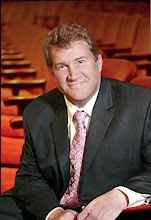 |
| Billionaire Mark Zuckerberg, cocreator of Facebook, gives away majority of his fortune |
I went to a business lunch with an attorney a few months ago who was very wealthy. Not earned wealth, but epic family money. Unlike many of my friends, who would just pick up a fifteen dollar lunch check and say "you can get it next time," more for convenience than anything else, this particular attorney studied the bill intensely. She then hailed down the waiter abruptly and went over the bill in great detail. With the mistake that had been made in the bill was discovered (an extra iced tea!! Aaahhhh!), she used that as a rationalization to only tip ten percent on her soup. "That will show him to not be perfect," she must have thought. I marveled at the thrift of the attorney knowing she would never be able to spend all of the money in her many accounts and portfolios.
I've also found a different, more generous, approach to wealth by those who were suddenly wealthy. New money seems to be less of a burden. Despite earning their fortunes through tireless work or a moment of genius that resulted in a novel patent idea, I have had clients who were so generous it was inspiring. I know a professor at a major teaching hospital who is paid about one hundred million dollars a year for a medical device he invented and licenses to a major pharmaceutical company. He drives a 1985 pick up truck and worn blue jeans every day. And unlike lottery winners who are suddenly wealthy, but didn't earn the money, he gives a large portion of his earnings each year to nonprofits in San Antonio and Kerrville, Texas. He's happy with the life he had when he became remarkably wealthy and had the good sense to not change what already worked. Unlike the attorney who was not very generous to the waiter, money was not a burden to him because he had not been born with it. It is a luxury to have... and to let go of...
Bill Gates and Warren Buffett are self-made men who concluded recently they could substantially change civilizations by focusing their billions of dollars on certain humanitarian efforts. To increase the impact of "letting go of" some of their fortunes, they have invited other billionaires to dinner (it was probably pretty nice, don't you imagine? No cold cut platter I'm guessing) to discuss their goals. It conjures a vision of financial super heroes with special cash capes and cool gadgets that only gazillionaires could have made in underground "Iron Man" type labs.
From what the Wall Street Journal reported, it sounds as though the "new money" billionaires have decided that growing huge wealth into even larger wealth is not as exciting as helping millions of people live better lives. If that isn't an inspiration, I don't know what is. Here's a take on the story by Philiana Ng.
Mark Zuckerberg to Give Away FortuneFacebook founder Mark Zuckerberg has signed on to give away a portion of his fortune, the Wall Street Journal reports.
The 26-year-old is one of 16 billionaires who have agreed to join "Giving Pledge," which asks its participants to publicly commit to giving away a majority of their wealth.
Zuckerberg, who founded Facebook in his Harvard University dorm and is portrayed by Jesse Eisenberg in The Social Network, is one of the youngest billionaires in the world. According to Forbes, he is said to be worth $6.9 billion, though the Journal notes his value is theoretical.
Earlier this year, Zuckerberg donated $100 million to the Newark public school system, which was announced on The Oprah Winfrey Show.
Facebook co-founder Dustin Moskovitz, who is played by actor Joseph Mazzello in the film, has also agreed to participate.
New additions to the pledge include AOL co-founder Steve Case, Carl Icahn and Michael Milken, an ex-junk-bond king. Other billionaires who had previously signed on include Oracle founder Larry Ellison, George Lucas and New York Mayor Michael Bloomberg.
Bill Gates and Warren Buffett started Giving Pledge in order to persuade the rich to be more philanthropic. Last year, the two hosted several dinners for billionaires to discuss setting up the pledge, which then led to its official launch in June.
"I view this as a call to others who might in their 30s or 40s use some of their creativity to get involved in philanthropy earlier in life," Milken said of Giving Pledge.
Steve and wife Jean Case chose to participate because of they wanted to learn from each other. "It is less about what size of a check that you write and more about the outcome," Steve Case said. His wife noted that people who start web companies, like Zuckerberg and the founders of AOL, want "to change the world," so it was only appropriate that "they are giving back in big ways."





